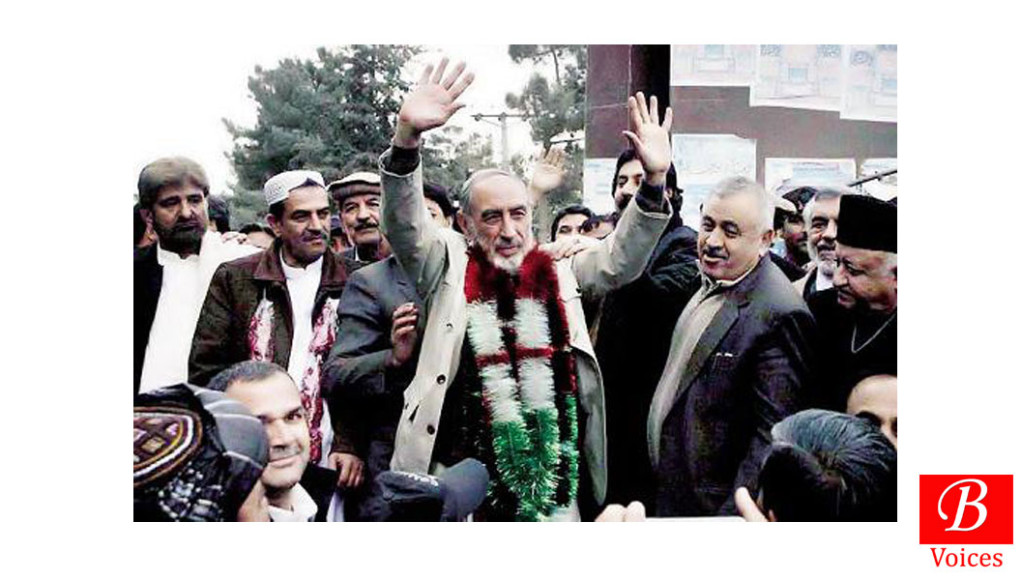Ayaz Ahmed
Democracy cannot function efficiently in the absence of effective local bodies. All developed democracies rely on powerful and effectual local bodies to acquire political stability and socio-economic prosperity. The province held local government polls in December 2013, but it was in January 2015 that the entire electoral process was completed. However, since then, the local bodies in Balochistan have been gripped with some obstructive issues, thus hindering these bodies to provide services to the people at grassroots level.
Experience has shown that in comparison to federal and provincial governments, local government is more accessible, sympathetic and swift in responding to local needs. It is at the local level that citizens come in contact with governmental structures on a daily basis. In a local democracy, necessary information is more readily available, and local authorities are obviously more knowledgeable about a local situation than authorities that are far away the grassroots level. It is also easier at the local level to hold officials and elected office-bearers accountable.
These bodies are primarily calculated to further devolve power to the local level. However, the ground realities in Balochistan have made it crystal clear that the ongoing powerless local bodies are overwhelmed by some disruptive issues deeply entrenched in the exclusionary politics of the province.
Powerless local bodies are overwhelmed by some disruptive issues deeply entrenched in the exclusionary politics of the province
First, MNAs and MPAs of the province are totally disinclined to transfer their burgeoning financial and administrative powers to the local bodies. They are apprehensive that once the local bodies are firmly in place, MNAs and MPAs would be deprived of development funds and long-lasting sway over local communities. That would create a conflict between the two as seen between 2001 and 2009 when there were repeated complaints of conflicts of interest between the district Nazims and the parliamentarians. Thus, these provincial and federal lawmakers have been engaged in impeding both power and resources to be transferred to the local bodies.
Second, the provincial bureaucracy has created mounting problems for the local bodies. These unelected office bearers do not tolerate ‘uneducated and incompetent’ representatives sharing their power and resources with the local representatives. The bureaucrats have delayed consent to development projects envisioned by the local bodies, thus discouraging local representatives from serving the people at the grassroots level.
Third, lack of adequate financial resources at hand has also hindered the constructive work of the local bodies. As seen in some districts of Balochistan, most union councils have not done any development work due to the scarcity of plausible financial resources. The basic democrats would face more similar issues for the rest of time given the non- participatory nature of the country’s politics.
Provincial bureaucracy has created mounting problems for the local bodies because they do not want to share their power and resources with local representatives
Fourth, local representatives in almost all districts of Balochistan have been deprived of requisite training for public management and administration, which is exclusive to bureaucrats. Therefore, these minor politicians have dismally failed to assess the nature of issues existing in their areas, inhibiting them from sorting out these local problems with sagacity. As a result, a large sum of development funds has been misappropriated and misused at local levels without any benefits to the people.
Fifth, the public in the province is divided into those who tend to prefer personal interests and those who favor local or national interests. The former have shown indifference to local bodies and their work which has, therefore, provided the local representatives an opportunity to use their offices for personal gains.
Lastly, the provincial local bodies have been plagued by the specter of corruption. Corruption and nepotism have become so rampant in Pakistan that it is hard to make sure that administrative powers and state funds are judiciously used by the elected representatives at the local level. In the absence of stringent checks and balances, the local bodies will further continue to misuse public resources and utilize them for their sectional and personal interests at the cost of the province’s larger interests.
The aforementioned hurdles existing in Balochistan and the democratic system of the country have instigated the people to further dislike and disown local bodies, increase loot and plunder of national resources by politicians and bureaucrats and cause a tug of war between the powerful bureaucracy and the local bodies.
It is the time required reforms were prudently crafted and immediately implemented for the sake of democratic growth in Balochistan and for the rest of the country. Both the federal and provincial setups should plausibly decentralize power to the local bodies, equip them with the modern training of effective and efficient public administration, remove bureaucratic hurdles and create a friendly environment between the bureaucracy and the local bodies , while keeping in place strict checks and balances against corruption.
Writer is a former senior researcher at Pakistan Institute of International Relations (PIIA), Karachi. Writer’s upcoming book on “Gwadar Port: Regional Strategic and Economic Interests” would be published soon. He has joined Balochistan Voices as a featured columnist. Email: [email protected]
Share your comments!








